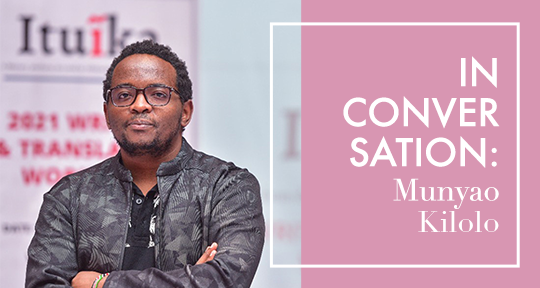Led by founder and Editor-in-Chief Munyao Kilolo, Ituĩka Literary Platform is an online and print platform pioneering original works in African languages; producing translations from, into, and between African languages; and cultivating a network of instructors to promote education in African languages. Named from the Gikuyu word meaning rapture, revolution, transformation, and transition, Ituĩka Literary Platform aims to transform African societies by centreing and bringing greater visibility to African languages in their literary canons. In this interview, Asymptote Editor-at-Large for Kenya, Wambua Muindi, sits down with Editor-in-Chief Munyao Kilolo to discuss his career and the path that brought him to his current position at Ituĩka. This conversation seeks to review the platform’s current engagements as well as what lies ahead, hence the conversation will be two-fold: concerning the present and the future.
Wambua Muindi (WM): How has the transition been, coming from Jalada Africa Collective, where you were Managing Editor, to the founding of Ituĩka?
Munyao Kilolo (MK): Jalada was founded by a collective of writers whose vision was very clear: to publish African writers widely and effectively. However, that vision was not specific to African languages. Even so, while I worked as their Managing Editor, I conceptualized the language and translation project for them, and this is what birthed the translation project that went on to make literary history. The inaugural edition led to the single most translated short story in the history of African writing. The story, which is called The Upright Revolution: Or Why Humans Walk Upright by Ngũgĩ wa Thiong’o, was translated into one hundred languages from around the world.
For several years after that, I thought a lot about this story and how African languages are represented in African literature, and it became apparent that we needed a platform that was solely devoted to African languages and translation if we were to enhance the work—work that would include publications, translations, and supporting projects enabling the production of literary material in African languages. So, I envisioned holding workshops, having databases, spotlighting people who are working in different African languages, and engaging in the formulation of theory in African languages—especially translation between one African language and another.
I spoke a lot with my friend Professor Mukoma wa Ngugi at Cornell University about these things, and eventually, the Ituĩka Literary Platform started to take shape. READ MORE…

